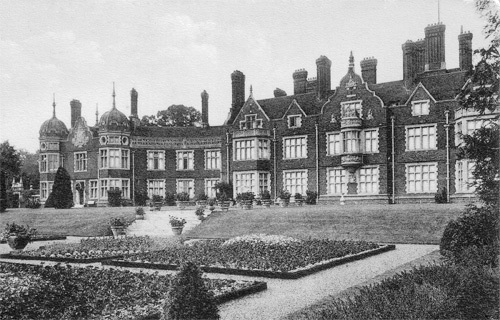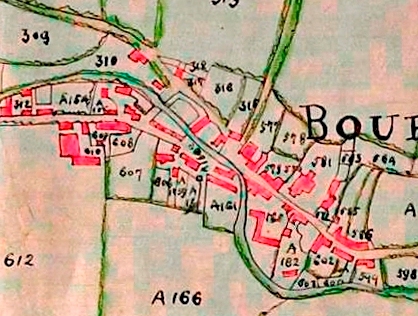
“The Demon”, Newton Wallop, 6th Earl of Portsmouth, caricature by Spy, Vanity Fair Magazine 21 August 1907
The Right Honourable Newton Wallop, 6th Earl of Portsmouth JP, DL (19 January 1856 – 4 December 1917), was a Liberal politician, who had served as Under-Secretary of State for War under Sir Henry Campbell-Bannermanfrom 1905 to 1908.
Though he still visited London on occasion, these days he spent most of his time on his estate at Farleigh Wallop. And they would be celebrating ‘the Glorious Twelfth‘ with a big shoot and house party. (Or at least, that had been the plan).
The new Hurstbourne Park was a comfortable place to live. Its predecessor, which Jane Austen had often visited, breathed Georgian elegance but was a cold and draughty place and he had shed few tears when it burned down on New Year’s Day 1891, the year he succeeded to the earldom.
The capital and income which funded both the Earl’s building and his largesse came from his ownership of land. In 1873, his father owned 16,401 acres in Hampshire alone, with an income of £14,732. 1 And he was glad to say that he had managed to extend that further (and, in his opinion, manage it better) in his own lifetime.
1785 Portsmouth Estate Map of SMB lands (Earl’s property thought to be preceded by ‘A’) Hampshire Record Office: 15M84/MP23/2
The Earl pulled himself out of his explanatory reverie. He felt an enormous weight of ‘noblesse oblige‘ on his shoulders. As one of the first people to hear the news of war (by telephone), he now felt responsible for all those who lived on his land, some of whom depended on its produce for their livelihood.
Why There is War
The following statement was issued from the Foreign Office last night: Owing to the summary rejection by the German Government of the request made by His Majesty’s Government for assurances that the neutrality of Belgium would be respected, His Majesty’s Ambassador in Berlin has received his passport, and His Majesty’s Government has declared to the German Government that a state of war exists between Great Britain and Germany as from 11pm on August 4.
The Earl suddenly realised that the vicar had two sons of an age to be called up – his friend was about to be plunged into a deeply worrying time for his own family, without all that he would have to bear as being responsible for ‘the cure of souls’ in Hurstbourne Priors and St Mary Bourne.
First of all, they should toll the church bells, that would be the right thing to do. That is what they had done on the outbreak of the Boer War, and again on the death of Queen Victoria. Would it really be all over by Christmas, as some were saying?
"St Andrews Parish Church, Hurstbourne Priors, Hampshire, UK"
by Mike Cattell - Flickr:Licensed under CC BY 2.0 via Wikimedia Commons. The church of St Andrew the Apostle is the oldest existing church in the Diocese of Winchester.





